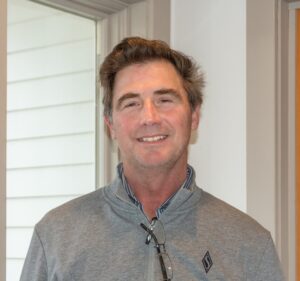TRURO — Incumbent John Dundas and concert committee vice chair Tim Hickey have both decided to run for select board this May. With these two contenders, five candidates are now vying for two available seats on the board.

Incumbent chair Kristen Reed, whose term is expiring, has not yet announced whether she will run again.
Dundas decided to seek a second term because, he said, “I enjoy it.” He described holding the public service role as “a great privilege.”
The town’s water quality is one of his primary concerns. “Water is civilization; civilization is water,” Dundas said. He added that in the past three years he has regularly attended meetings of the Provincetown Water and Sewer Board. Dundas said he does that in an effort to boost communication across towns.
Listening is a critical part of the job, Dundas said. “When the select board meets, these are hearings, not talkings.”
Hickey stepped down as chair of the town’s Republican committee to enter the select board race. “I don’t want to have any partisan attachments while I’m running for this office,” he said.
Hickey recently convened the Republican town committee, which had long been out of commission, after hearing from neighbors that they didn’t feel they were represented. He said his goal is balance in municipal affairs. “My priorities are truly reflecting all the people of Truro,” Hickey said.
Both Dundas and Hickey favor a phased approach to housing development on the 70-acre Walsh property. An article that lays the groundwork for up to 160 dwelling units to be developed on the property — down from the initial proposal of 252 units — is one of the most controversial articles up for discussion at town meeting in May.
Hickey said he thinks that most Truro residents want to see a maximum of 80 units built on the Walsh property. His own preference, he told the Independent, is for 65 units. Hickey said he attended several Walsh committee meetings, including a community forum where he sat at a small table and had a discussion with other participants. Most people in that group favored building 40 to 60 units, Hickey said.
“I think we really need to reflect all the people and not the minority of people that want more housing, because if that happens, then there’s a risk with traffic, safety, water,” Hickey said. Hickey’s home, at 32 Hopkins Way, is near the Walsh property.
“I do access Route 6 at S. Highland, a few hundred feet north of Walsh Way, and am fully aware that Walsh traffic will affect my neighborhood and many surrounding neighborhoods on both sides of Route 6,” he wrote in an email.
Hickey added that he’s concerned about effects on the land. “I’m a naturalist. I’m an environmentalist,” he said. “The less forest we tear out the better.”
Dundas said he thought that concerns about water, when it comes to the Walsh property, are “absolutely justified.” In terms of ideal housing development, Dundas said, “I think we do a small number.” Dundas said the 160-unit cap proposed in the Walsh article on the special town meeting warrant is just “a projection by our consultancy.”
That much new housing, Dundas said, “would be a little bit difficult to absorb. I just always believe that these things should happen incrementally.”
At the same time, Dundas said, “We need employees, we need the young, we need places for teachers to live, because the demographic is aging.”

Hickey’s campaign website refers to the cost of a proposed new DPW facility as $64 million. “Truro residents have made it clear on the DPW — the $64 million price tag all in is simply a non-starter,” the website states. A special town meeting article seeks a $35-million borrowing authorization for the facility. Hickey said his figure takes into account projected interest costs over decades.
According to Truro Finance Director Alex Lessin, Hickey’s $64-million figure is based on assumptions about how the town would finance the project. That would be the total cost if the town borrowed $35 million now, paying it back over 30 years at current interest rates. But the town probably wouldn’t borrow the whole amount at once, Lessin said, and he expects interest rates to fall. Also, he said, the figure does not take into account the project’s other funding streams. In all, Lessin told the Independent, “I think the math is correct, but the principal is too high and the terms are wrong.”
Dundas, the eighth of 10 children, was raised in Keene, N.H. He enlisted in the New Hampshire National Guard in 1979 and attended West Point soon after. He retired from military work in 2005 and moved to Truro, his mother’s hometown, in 2006. He now works as chief revenue and development officer at a data security company called Stash Global Inc.
Hickey grew up in Winthrop and spent most of his life working in Kirkland, Wash. He was recruited to play football at Boston University but transferred after two years. That’s when he took a turn toward performance, he said. Hickey found his calling in singing, acting, and tap-dancing, embarking on intercontinental Broadway tours of 42nd Street and My Fair Lady — including a 1990 command performance for the king and queen of Malaysia, he said. Hickey first visited the Outer Cape in the ’70s, and it became “a lifelong dream to live here.” He and his wife moved here in 2020.
Hickey believes listening is key to smoothing over the divide that has taken hold in town.
Dundas, for his part, is not sure the divide is a problem: “I think a divide is just people having opinions, and opinions are good,” he said.
Dundas and Hickey will be on the May 29 ballot alongside three previously declared candidates: Sue Girard-Irwin, Kevin Grunwald, and Nancy Medoff; each was profiled in the Feb. 1 edition of the Independent.
Editor’s note: An earlier version of this article, published in print on March 28, incorrectly reported the year that Tim Hickey moved to Truro. It was 2020, not 2019.



